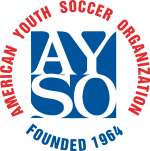Referee/FAQ/Miscellaneous
FAQ: Miscellaneous
May Regions adopt local playing rules outside of IFAB, and AYSO rules?
The very first line of the AYSO National Rules & Regulations states, “All AYSO games shall be conducted per the current IFAB Laws of the Game, and decisions of the International Board…” The bulk of the remaining content of the AYSO National Rules & Regulations clarifies the kind of specific exceptions which are permitted. In the beginning of the IFAB Laws of the Game under “Modifications” it states, “Subject to the agreement of the national association concerned, and provided the principles of these Laws are maintained, the Laws may be modified in their application…”, and then specifies the kinds of modifications that are permissible. These statements endeavor to make it clear how AYSO games should be played, and who, how, and to what extent the Laws may be modified. Making a local rule in the presumed interest of player safety may appear well-intentioned on the surface but careful consideration must be given to the overall effect of the rule, and whether or not it is permissible or, in fact, beneficial. It is the job of Coaches to teach players correct techniques to help them avoid injury to themselves, and others. It is the job of Referees to learn to recognize when skills are executed correctly or not. Players should develop, Coaches should teach, and Referees should learn to recognize the skills that are a part of the game of soccer. When we make a local rule that takes away one or more of the skills used in playing the game this lessens the opportunities for players to learn to execute the skill correctly, Coaches to teach the skill, and Referees to recognize the skill performed legally. An argument could be made that such local rules actually may cause more injuries than they prevent because Coaches will be discouraged from teaching correct techniques to the players since there is a local rule prohibiting the skill.
Does AYSO have any “Mercy Rules,” “Slaughter Rules” or “Blowout Rules”?
There are no such rules in AYSO to deal with games where one team is dominating the scoring. In any competition, there is a chance that the score will be lopsided. We believe such things as “Blowout Rules,” “Mercy Rules,” “Slaughter Rules,” etc. that end a game prematurely or “play short” rules that require the winning team to play with fewer than the allowable number of players or rules that require teams to somehow stop scoring goals only penalizes a team for accomplishing what it has been trained to accomplish (score goals), and sends the wrong message to the losing team. A major part of the sport is enjoying the process of playing by the players- not just who ultimately wins. The message we want to send is “keep on trying”- not to give up just because it is difficult. Losing, when dealt with appropriately, builds character, and resolves to improve. Mercy Rules, play-short rules, or similar rules potentially build a willingness to give up early or to want rules in place to give teams an unfair advantage just because they are losing. Each team is entitled to start and play the game with the maximum number of players allowable. Nowhere in the Laws of the Game or the AYSO National Coaching or Refereeing Program is it suggested or required to have a winning team play with fewer players than the losing team or for the game to end early or similar rules because the score is lopsided. AYSO’s “Balanced Team” concept refers to making an honest attempt to balance the skill level of teams within an age group when teams are formed before the beginning of the season. In situations where one or both teams are short a significant number of players; a “friendly match” could be organized by combining/sharing players from one or both teams. Where won/loss standings are recorded, the outcome of the “friendly match” would not affect the standings. It should be predetermined and agreed upon in advance how the official outcome of the regularly scheduled game is to be recorded. Regions should not adopt local rules, and Referees should not interfere with games because of lopsided scores. It is a player’s game, and they should be given the full playing time without undue interference to enjoy, and learn from the process.
When are substitutions allowed in AYSO 13U/14U, 15U/16U, and 17U/18U/19U games where Monitored (free) Substitution is being used rather than the normal AYSO substitution at “quarters”?
Monitored Substitution is allowed in 13U/14U, 15U/16U, and 17U/18U/19U age divisions only if it is handled in a manner that will ensure that every participant plays at least one half of every game by requiring a separate time monitor, independent of the Coaches, who checks each player in or out of the game. Where Monitored Substitution is being used in 13U/14U, 15U/16U, and 17U/18U/19U games, substitutions will be permitted with the Referee’s permission during any stoppage in play as specified in the IFAB Laws of the Game, Law 3 (The Number of Players) as well as in the section titled “Practical Guidelines for Match Officials”. Substitution rules used in High School, College, or other soccer organizations do not apply to AYSO games. The substitution procedures used in games played according to the IFAB Laws of the Game will be in effect. Namely, when a substitution is requested (the Assistant Referee signals a substitution has been requested), the Referee will determine when there is an appropriate stoppage in play, and will then allow the substitution to occur as outlined by the Laws of the Game.

